People always ask me how I got started with blogging. The truth is that it wasn’t a simple upward trajectory. Some things worked for me, while others didn’t. It has been a non-stop learning process.
If you want to start your own blog, it is essential to understand that there’s no one-size-fits-all solution. The good news, however, is that there are a few core lessons that every would-be blogger can learn to create a more successful blog!
Whether you are talking about travel, fashion, food, DIY, or whatever you are into, the fundamentals are the same. If you are looking to explore a new hobby, establish a platform to showcase your work, or are dreaming of a career as a blogger, I’m here to help!
So, future blogging superstar, here are some tips from your very own fairy blog-mother!
Find Your Passion
Passion is everything.
Travel is my life and I blog about it because there’s nothing I love more. Whether I am researching a destination, exploring, or editing photos, I am completely “in the zone.” I could have never logged all of these hours working on anything else.
If it’s not a passion project, you are going to struggle and your readers are going to sense that.
Before you get started, pinpoint your passion. There is a niche for everything. Solo female travel is what captured my heart but it could be something completely different for you. Whatever sparks your soul, I guarantee you that there are countless others out there that want to delve into it.
Make a Schedule
How many would-be artists, bloggers, and designers are out there? Now, how many have really put the blood, sweat, and tears into it to be a success?
The first thing for brand-new bloggers to understand is that blogging takes time.
Consistent, diligent effort is everything. When you are ready to put pen to paper (or fingers to keyboard), you need to create an editorial calendar. I’d recommend using Google Sheets or checking out some of the handy WordPress planning plug-ins—I personally like CoSchedule.
Be careful not to overload yourself. It’s vital to be completely realistic, especially if you are working full-time. Give yourself time to write quality pieces. If you have time to write more than you expect, that’s great. But if you overbook your time, you will feel constantly behind and stressed out.
Finding an online project manager that works for you (or your team) is a great tool to keep things organized and on track!
Brainstorm and Backlog
In addition to having a formal To-Do list and project manager, it’s handy to have a notepad (real or electronic) where you can keep all of your ideas for posts.
When you’re just starting to build out your content or create your editorial calendar, I’d recommend aiming to create a list with 100 ideas for blog posts that you can pull from whenever you’re ready to start writing. I know that can feel like an overwhelming amount but, once you start going, the ideas will just flow.
Write down anything that comes to mind—you can always refine topics later.
As far as backlogging, aim to get ahead of your posting schedule. You never know when something might come up and you will get behind. Get in the habit of prepping posts when you’ve got free time. It’s such a good feeling to realize that you already have a post ready to go when you need it.
Utilize Social Media Specific to Your Audience
Your first step to becoming a social media maven is finding where your audience is: do they use YouTube, Facebook, Instagram, Twitch, Pinterest?
Chances are that your potential readers use a combination of different platforms, so while it’s smart to diversify and create a presence across multiple platforms, don’t stretch yourself *too* thin. Put yourself out there, but don’t push too hard.
Do what comes naturally to you.
If you’re not comfortable talking on camera, use more images. Just be yourself, that’s the best way to create an authentic connection with others.
For a while, I really wanted to expand my YouTube presence and create more videos. But after several months of filming, editing, and creating vlogs (they’re SUPER time consuming, so props to anyone who does this!), I realized that my main audience isn’t on YouTube all that much.
Really analyze your audience and see which platforms would be most beneficial for you to invest your time in. Where is your audience spending their time?
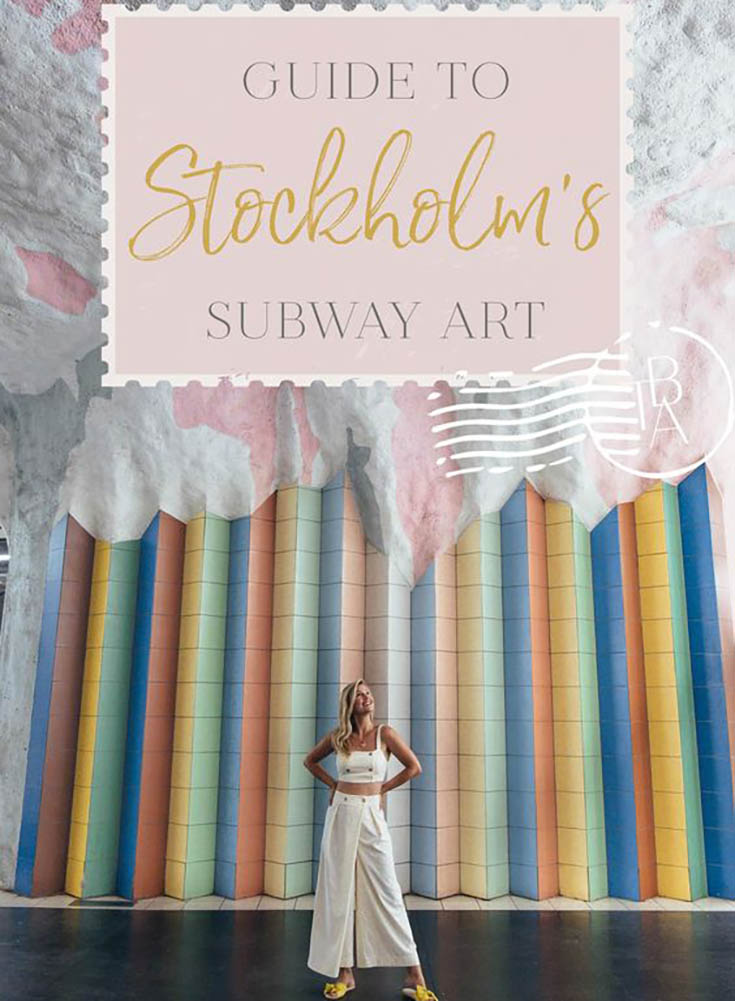

I am continually surprised at how many of my views come from Pinterest! I’d highly recommend experimenting there. While you do need to stay up-to-date on trends and best practices, there’s one go-to strategy that has always worked for me: eye-catching graphics!
Create a graphic that you’d be enticed to click and be sure to keep it branded. Typically I add the TBA stamp or my website URL to pins.
To create beautiful graphics, you can teach yourself the basics of Adobe Photoshop, and create a logo and graphics using your branding colors and fonts. However, this can be a time-consuming route. For complete beginners, I recommend Canva — it’s a great resource for designing brand elements and graphics! They have thousands of templates, stock photos and premade graphics for just about everything, and are very easy to customize.
Helpful Tip:
Define Your Brand
Make yourself recognizable.
Create a logo and use it across every platform. You can always rebrand later (I did!) but, for now, it is all about establishing credibility and consistency.
Creative Market has lots of premade logos, social media templates, fonts, patterns and textures that you can incorporate into your website and branding elements — it’s heaven for stepping up your aesthetic!
Part of defining your brand is establishing your audience. At first, I resisted this idea and didn’t want to pigeon-hole myself. I was trying to write for everyone but I later realized that it was more beneficial to write for a particular audience and create posts useful to them.
My target audience is females in their 20s-30s, like myself. Once you have your audience in mind, it makes the whole process so much easier and ultimately helps you to create better content.
Helpful Tip:
Get Your Photos Up to Par
Let’s be honest, there are days I would skip through the most well-written post to just look at the photos. High quality, engaging photos are key and they can truly set your blog above the rest.
Photography is one of my passions (in case you couldn’t tell—just look at all of the photography resources I’ve shared!). While your blog doesn’t have to be as photo-heavy as mine, I’d highly recommend learning the basics. You can start with the ultimate guide to smartphone travel photography.
If you’re a total newbie, learn how to shoot in manual and start to get your head around lighting and shadows. Practice styling flat lays then learn how to edit. And, trust me, the magic is in the edit! Edit consistently and learn how to create a mood.
For me, it’s all about Lightroom Presets—they transform regular shots into jaw-dropping pics.
TBA Lightroom Presets
Whether you’re just starting out with photography or have been shooting for years, these easy-to-use presets will instantly add a beautiful aesthetic to all of your images!
Shop NowThe Best Camera for Beginner Travel Photographers
There are a lot of great options in the Fujifilm X Series, but the brand new FUJIFILM X-T100 is the best camera for beginner travel photographers.
Read MoreFocus on Quality
When I first started out, I was posting here and there on a whim…whenever I was feeling inspired. Now that I’m more experienced, I know it’s better to be consistent and purposeful in my posts.
It’s important to block out time to craft content and not just “whenever you feel like it.”
However, I would definitely recommend taking notes whenever inspiration strikes! Then, set a consistent time every week where you look back over your notes and musings and curate only the highest quality content.
Treat your blog like you would an important document for work or school. Read your writing aloud to make sure your points are clear and concise. Triple check for typos and mistakes.
Grammarly is a handy Chrome extension/app that will catch errors as you type. I highly recommend installing this!
Be Helpful
Every blog post should have a purpose.
Think about why you click on certain articles and why you continue reading: are they helpful? Do they make your life easier? Do they provide valuable insights? Ask yourself what point you are trying to make and offer a unique perspective.
Of course, not every post has to be Nobel Prize-worthy (and posts don’t have to be thousands of words long) but think about the content you’re creating.
Would you click on it, share it, or recommend it to a friend?
Consider Readability
People often read on their phones and are looking for a quick and easy read, so it’s very common for people to skip over large blocks of text.
Blog posts should be visually interesting.
I’d suggest breaking up your text by using “header” fonts (which can also be great for SEO) and including corresponding photos to make posts aesthetically pleasing while keeping the reader’s attention.
Learn About SEO Practices
It is essential that people can find your blog on Google. To make your website searchable, take the time to learn about Google Ranking and SEO practices. Be sure to get familiar with creating SEO titles and using keywords throughout your post.
I know it can be a dry topic, but you’ll find great content on YouTube and Skillshare.
Join Skillshare Today and Get Two Weeks of Premium for Free!
NEW USERS GET 14 FREE DAYS OF SKILLSHARE PREMIUM
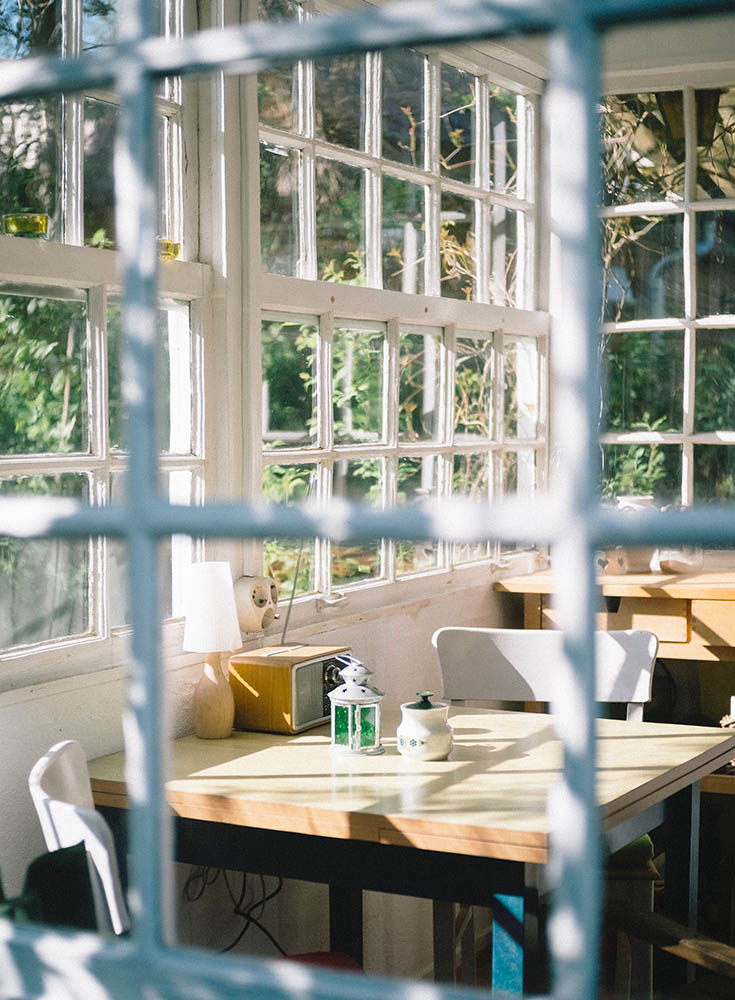

Network
Find bloggers and other people working in your industry—chat online or meet up for coffee. These relationships, whether they’re virtual or IRL, are a great way to swap tips and help each other grow. There’s also the possibility of guest posting and sharing content, which is great for backlinking and SEO.
Make sure to be genuine when building these relationships.
Helpful Tip:
Load Up Your Content
I’ve seen too many people start blogs and immediately share it on social media when they only have one or two posts up. I know it’s tempting to show off your work, but I would hold off—wait until you’ve got at least five or even ten posts live. With more content up, readers get a better idea of who you are.
If you don’t connect with them during this first visit, they aren’t likely to return.
Another thing I’ve noticed is that often I find people who share a blog with only one to two posts don’t stick around. After their initial hype of getting a blog up, a majority of them don’t continue because they didn’t get into a groove and didn’t find immediate success.
Create a plan and load up on content!
Set Up a Place to Manage All Your Passwords
The more time you spend online, the more important it is to stay organized.
While you might just have a few passwords to keep track of now, it will be an ever-growing collection. You will have so many passwords that you only use once in a blue moon and it’ll save you so much hassle to keep them saved in one spot.
Lastpass is a prime option for managing passwords, and you can start with a free trial.
Read More: Why Every Online Business Owner and Blogger Needs a VPN
Don’t Compare + Don’t Expect Immediate Success
This is actually one of the most crucial lessons to learn. I know it’s hard but don’t compare yourself or your blog to others.
Everyone is at a different stage in their journey.
Dream big. Be bold. Create things you’re passionate about. But, no matter how great your blog is, be patient. You won’t develop a following overnight and building an online community takes time.
I have been working tirelessly for seven years now. Many bloggers have been working just as long or longer so don’t expect to match their success in just a few weeks.
But don’t let that discourage you!
Last, stay humble! Ask your friends and family for honest feedback and take their critiques with an open mind. Negative comments can actually be a great thing. Use them to grow and perfect your blog then (and most importantly!) brush them off and stay positive.
What’s Next?
Keep learning, growing, and building your brand
Are you looking for more info on how to build an email list? Want to learn how to create a media kit? Learn about brand collaborations, Search Engine Optimization, Google Analytics, and more!
If you are really taking your blog to the next level, you are going to love my Blogging Master Class!
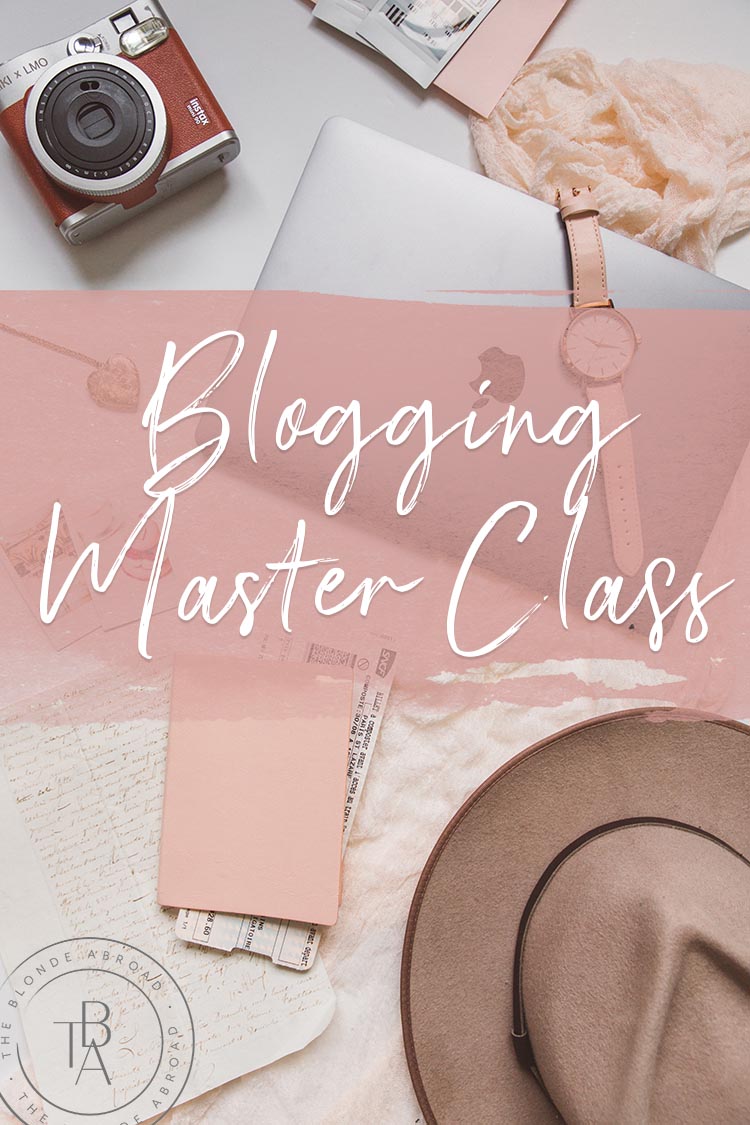

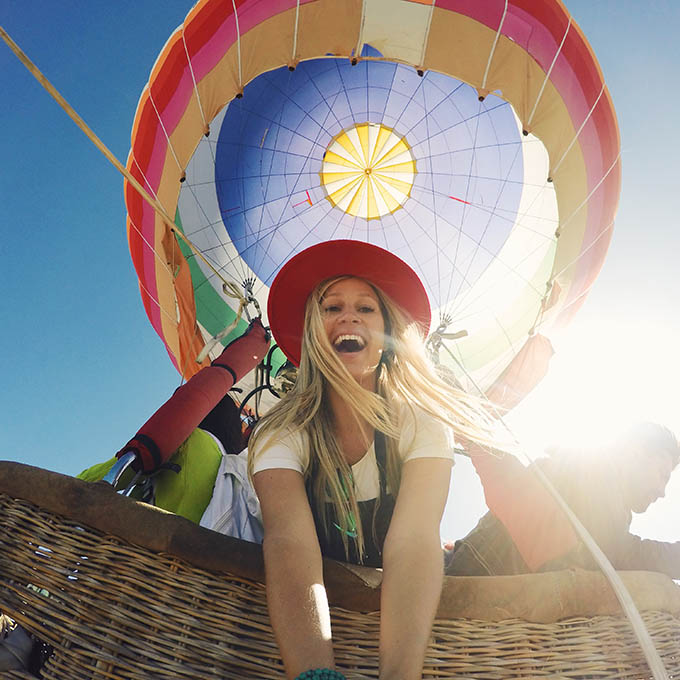











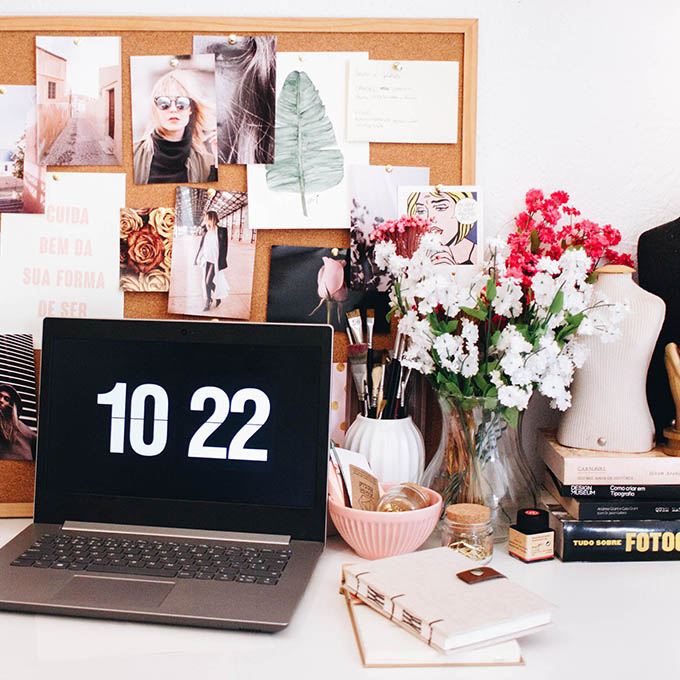













Your tips are so helpful. I admit, I struggle a lot with content creation, I like to do things when I want or have inspiration but I realize I need to create a schedule in order to have more posts!
And yes, it’s frustrating when you see you don’t have followers or visitors but I’m just thinking this takes time and someday my blog will have success! Meanwhile, I’m learning a lot about blogging and social media.
There’s a lot to learn and I know it can be slow to start, but if you’re loving it—that’s the key! And yes, it can be difficult but if you think about it as a job rather than a hobby it makes sense that you have to have dedicated hours to building it.
Great post! I love your blog; it’s so pretty. I’m slowly working on putting mine together and these tips were great. Every once in a while I find myself getting anxious because I’ve been talking about starting a blog for about 3 years, and actively working on it for a year, albeit slowly. Then I remind myself that taking my time will ensure that I’ve thought of everything and anything I create will be done with purpose. I also work full time and have children so there’s that! Thanks again for these tips.
Rome wasn’t built in a day! I personally think it’s better to have quality content than quantity—so keep that in mind and always think about your purpose! Sounds like you’re on the right track though 🙂